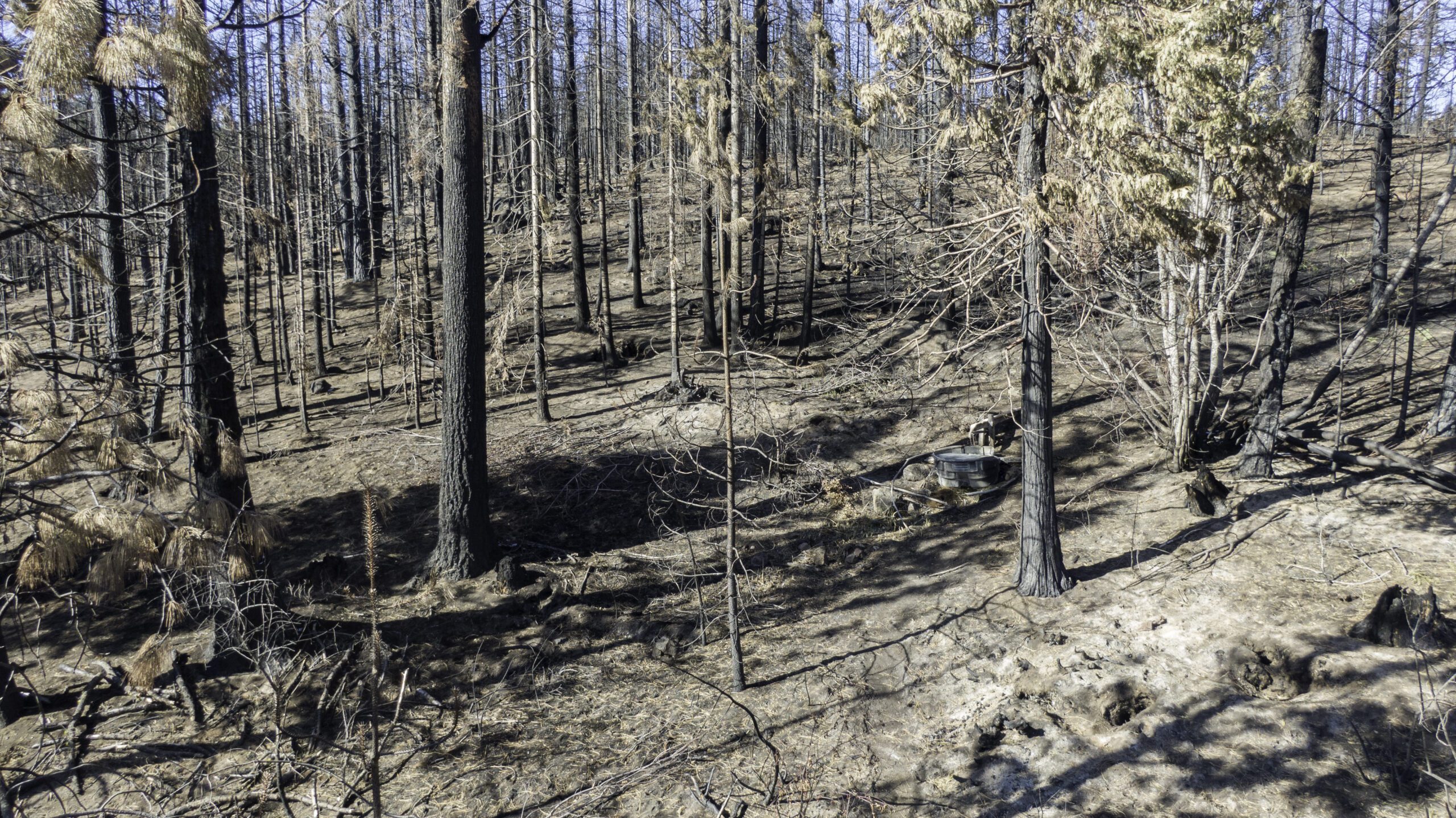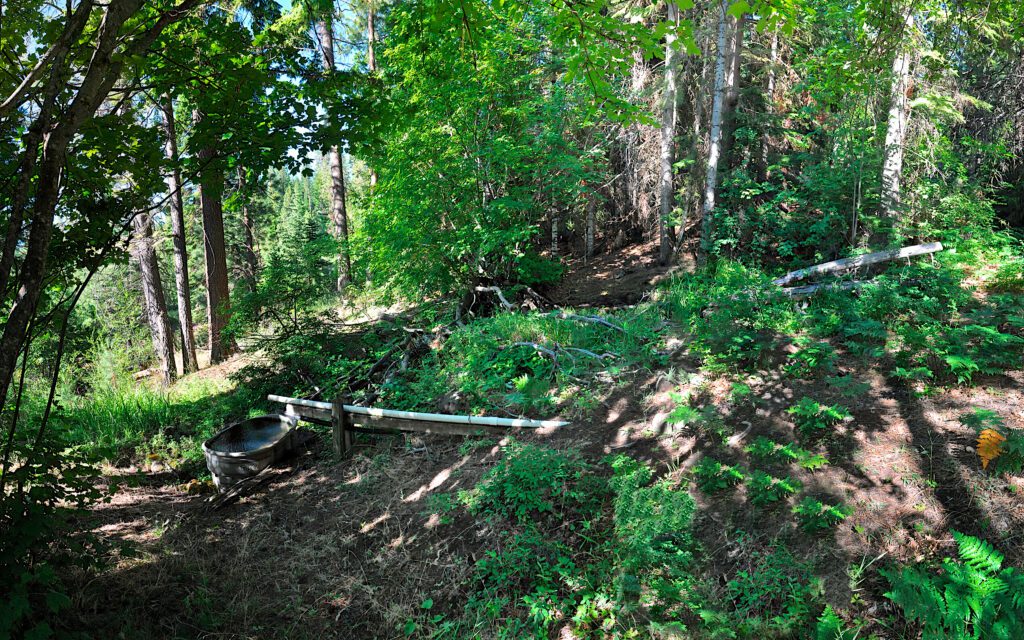Project Description
About nine miles east of Highway 20 along Green Ridge in Jefferson County, natural spring water used to flow onto an otherwise fairly dry forested hillside, creating a small wetland. Decades ago, the landowner of private timberland placed a small pipe in the spring to collect water in a trough. Overflow from the trough continued to create a small swampy area filled with sedge beneath the deep understory shade of conifers. The site, named Whiskey Springs, supported a high diversity of plants and animals. Respectful of private land, birders were allowed to peek through the branches at the dozens of species that thrived at the relatively rare water source. The owner lost patience when, a few years ago, visitors to the site felled trees and trimmed back shrubs and sedges to view birds at the wetland and water trough. Then, in 2020, the area was devastated by wildfire. The intense heat of the 2021 summer, augmented by a “heat dome” that affected much of Oregon, parched the soil and the spring nearly went dry.
For several years, Audubon volunteers led by Judy Meredith worked to restore the site, first from vandalism, then from fire, while agreeing to view birds only from the road below the spring. In the summer of 2021, they worked countless hours replanting native vegetation, hauling water to augment spring flow that would help encourage regrowth, and repaired the relationship with the landowners. During the drought, water was hauled to the site by volunteers and many local birds and fauna relied upon our help. However, the spring became such a critical drinking site that herds of elk degraded and delayed site recovery by intensive browsing of young shoots and trampling the evolving wetland.
With better spring flow conditions in the spring of 2022, hauling water to the site was no longer necessary. ECAS volunteers, some with experience in wildlife biology, wetland restoration, native plants, and engineering, formulated a plan to augment long-term recovery. Volunteers continued to help restore the site to accelerate recovery of native vegetation by watering some individual plants, applying local nearby forest mulch, and pulling non-native cheat grass. Throughout the year the site was still highly used by a variety of birds and wildlife.
Why We Do This and What We Have Learned
Before the 2020 wildfire, a summer visit of two or three hours could result in seeing six or seven species of warblers, four or five species of woodpeckers, several species of sparrows, thrush, and even raptors all behaving naturally, in a close habitat of dripping water supplying sustenance to native forbs, ferns, shrubs, and trees.
Using trail cams to document mammal and raptor use, along with bird observations while rehabilitating the site, volunteers hope to document the effects of the work they have done by gathering and planting native seeds and adding mycorrhizal material and mulch to improve the soil sterilized by the fire. They are monitoring the area to compare remaining bare areas with mulched areas to learn the degree to which their work has helped with recovery. They are helping wildlife and habitat and learning more as they work.
Volunteers have learned that citizen science projects can contribute vital and valid information to the scientific understanding of the evolving natural world.
What Volunteers Do
Volunteers go to a spot that is an 80-mile round trip from Bend to plant or water plants if necessary; place barriers to protect young sensitive plants from browsing and trampling by elk; maintain and clean the spring water trough; and remove invasive plants (such as cheat grass) as necessary. The work is dirty, but rewarding. Volunteers enjoy the camaraderie of their fellow laborers and the added benefit of seeing the diversity of local birds that depend so much on the small supply of water that sustains their diverse ecosystem.
Project Focus Areas
- Community Engagement
- Habitat Restoration/Improvement
- Accelerate Wildfire Recovery
Would You Like to Volunteer?
If the volunteering tasks described above sounds like an enjoyable and useful way to spend some of your time, send an email to jmeredit@bendnet.com. Be sure to put “Whiskey Springs Documentation” in the subject line.
Project Updates
Other Projects
- Bluebird Nest Box Project
- Cabin Lake Bird Blind
- Deschutes Land Trust / ECAS Bird Surveys
- Don and Lowell Franks Nest Box Project
- Geographic Information Systems (GIS) Project Support
- Golden Eagle Nest Camera on Whychus Creek
- Greater Sage-Grouse Project
- Green Ridge Raptor Survey
- Highway Osprey Nest Monitoring
- Kestrel Nest Box Project
- Lake Abert Coalition Bird Survey
- Pinyon Jay Study
- Summer Lake Shorebird Survey
- Vaux’s Swift Migration Survey
- Winter Raptor Surveys




